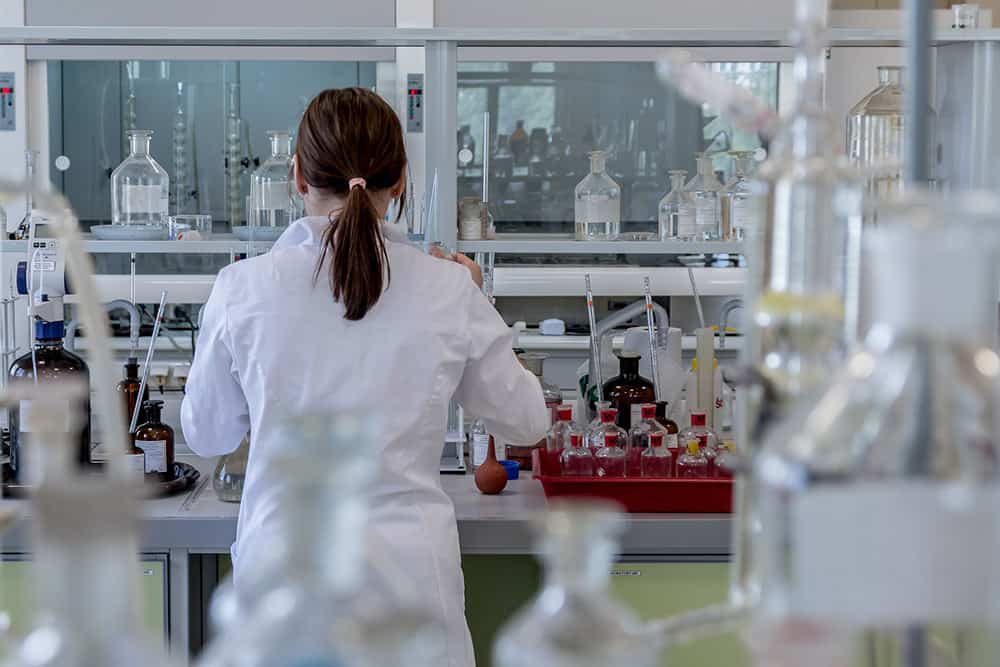New £20 million coronavirus research investment to develop crucial vaccine trials

Business Secretary Alok Sharma has announced that six essential coronavirus research projects, including two focused on vaccination trials, will be the first to benefit from a share of £20 million in government investment.
Two government-backed projects will receive new funding, enabling pre-clinical and clinical vaccine trials, as well as supporting researchers to develop manufacturing processes to produce a vaccine at a million-dose scale.
Other projects receiving funding examine how existing treatments could be repurposed to treat coronavirus, developing antibodies to help target the virus, and examining how people at greatest risk of catching it could be identified.
Business Secretary Alok Sharma said: “Whether testing new drugs or examining how to repurpose existing ones, UK scientists and researchers have been working tirelessly on the development of treatments for coronavirus.
“The projects we are funding today will be vital in our work to support our valuable NHS and protect people’s lives.”
Each project will run over a maximum 18-month period, ensuring timely insights into the current epidemic.
The six projects receiving funding are supporting and encouraging the UK’s world-class researchers and experts to speed up coronavirus research including developing new vaccines and treatments.
Alongside the clinical trials, other projects include:
- Repurposing existing therapies. Patients being treated by the NHS for coronavirus are taking part in a new clinical trial to test existing therapies developed for other conditions such as HIV. These therapies might help improve patients’ recovery
- Developing antibodies that target coronavirus. Researchers are aiming to develop a new coronavirus therapy by developing antibodies that target the disease – doing so will help treat a range of coronavirus infections and help people’s immune systems recognise the disease and destroy it
- Testing approved drugs. Researchers will test around 1,000 approved drugs on cells in laboratory conditions to determine if they might be able to treat the disease
- Answering urgent questions relating to coronavirus. Scientists will collect samples and data from patients diagnosed with coronavirus in the UK to answer important questions including which peoples have a higher risk of severe illness, the best way to diagnose the disease, how their immune systems are coping, and closely monitoring the effects of drugs being used. The data could help control the outbreak and improve treatments for patients
Chief Medical Officer Professor Chris Whitty said: “The world faces an unprecedented challenge in our efforts to tackle the spread of COVID-19 and it is vital we harness our research capabilities to the fullest extent to limit the outbreak and protect life.
“Alongside the world-leading research overseen by the NIHR, these new 6 projects will allow us to boost our existing knowledge and test new and innovative ways to understand and treat the disease.”
The research projects will be carried out by:
- Dr Kenneth Baillie, University of Edinburgh, Professor Peter Openshaw, Imperial College London, and Professor Calum Semple University of Liverpool – £4.9 million
- Professor Sarah Gilbert, University of Oxford – £2.2 million
- Professor Peter Horby, University of Oxford – £2.1 million
- Professor Xiao-Ning Xu, Chelsea and Westminster Hospital, Imperial College London – £0.6 million
- Dr Sandy Douglas, University of Oxford – £0.4 million
- Professor Ultan Power and Professor Ken Mills, Queens University Belfast – £0.3 million
For further details about the specific work the researchers will be undertaking, visit: https://www.gov.uk/government/news/vaccine-trials-among-recipients-of-20-million-coronavirus-research-investment
The announcement follows £30 million of new government funding for the National Institute for Health Research (NIHR) to enable further rapid research into COVID-19, and an additional £10 million to increase Public Health England’s ability to test people and monitor the virus.
Established in 2006, the NIHR aims to improve the health and wealth of the nation through research, and is funded by the Department of Health and Social Care (DHSC).

